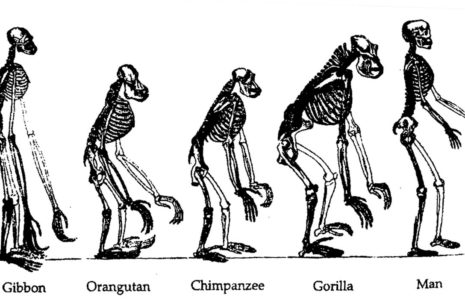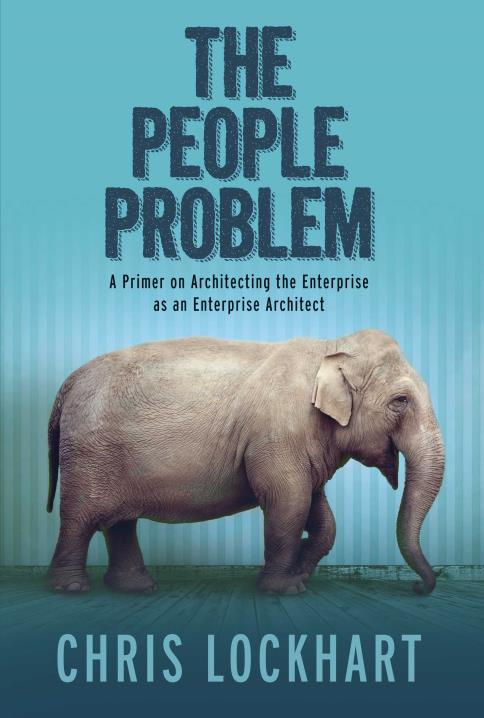I’m not afraid of my bias
The reality is, I as a human being I have my own preferences for things. That doesn’t mean I knock people about too much for whatever it is they prefer. I simply have my own value system that places a greater degree of importance on some things versus others. Naturally this is open to reinterpretation as I age and I like to think I’m always susceptible to persuasion that something else is, in fact, better than what I would choose. Be that as it may, I still take it as an immutable fact of nature that we are bio-chemically designed and genetically engineered to have preference. It is part of what makes us alive. Of course, you could always just brush up on your 19th Century botanists, biologists and evolutionary theorists if you doubt any of this. Naturally I’m open to a persuasive argument. How does this apply in any way to technology or business? Well it seems clear that technologists have their various preferences for vendors or tools or specific frameworks or methods or approaches. No argument there, although wouldn’t it be amazing if technologists were truly vendor-blind? But I have a much higher-level bias which should become apparent shortly.
Natural Selection of IT Architects
I find it bewildering how, in a field that relies on human interaction, we don’t place more emphasis on people skills. The best technical solution is useless if it can’t be communicated by its creator or effectively championed in the face of opposition (and let’s face it, good ideas often face opposition of one sort or another). There is a good reason why developers must grow in experience and age before they can evolve into the role of an architect. Architecture takes for granted technical understanding but places a premium on the ability to effectively analyze, design and communicate the architecture to those who would actually build it. Sadly too many in our profession have the title of architect while lacking this essential ingredient. Architects who cannot effectively interact with other human beings are destined to be out-performed by other, more adaptable species.
The Big Picture Guy
With Enterprise Architecture the need for people skills is critical for an effective practitioner. By its very nature EA is an abstraction of all that it represents. Yes there is detail underpinning that abstraction, but when describing the nature of the business-IT interaction to C-level executives, it is only required that the detail exists and that you as an architect understand it at some level. It matters less whether or not you can regurgitate the detail on demand. I think this is a tragic mistake often made when it comes to EA. We take smart people who can stand in front of folks and read a deck of slides and tend to think they might make good architects or specifically Enterprise Architects. We find out too late that, yes they are smart, but in many ways they are too smart. They focus on that which they know better than anyone else around them: detail. This is the classic case of missing the fact that a forest exists but knowing every type of bark on every type of tree around you.
Don’t get me wrong, I’m not against smart people. I’m against smart people who take refuge in detail. They don’t make good architects in my experience. They make great analysts or developers or project managers. They have a uncanny knack for knowing intimate details of anything they touch. But in detail you lose a sense of perspective that is absolutely necessary to perform architecture effectively. Beware the Enterprise Architect who is better at writing code than your developers.
Four years of coasting
People seem obsessed with knowing where you went to college and what you studied there. I confess I had a non-vocational degree experience. People always assumed I was going to become a teacher. I’m a history major because I like history, not cause I want to teach it. I have a liberal arts degree yet have never spent a day of my life in the history profession. Going back to the over-caffeinated days of the cardboard box as your desk in the mid- to late-1990s internet start-up frenzy, I’ve always found that my liberal arts degree was uniquely suited to my line of work. Pitching ideas and pitching to investors and pitching to my peers and pitching to myself were always easier for those of us used to standing in front of folks to verbally defend a written analysis of 1920s Japanese politics or other seemingly unrelated topics.
The reality was, and is, that if you are capable of effective human interaction and you are good at thinking big picture, you can communicate your ideas and drill into the right detail at the right time. I have yet to encounter a situation that proved otherwise. For that reason, I’ve always tended to think of liberal arts majors as the big picture thinkers. Sure they may have skated by for four years to get a bachelors in political science and can’t possibly compete for instinctive grasp of of C++ libraries with a computer science major, but that lowly poli-sci major has an advantage in being able to grasp the big picture and understand its implications. He’s used to thinking big picture. He’s used to thinking outside the box. In fact, he’d make a good consultant. And that isn’t all that bad if you want to be an enterprise architect. I often think that if anyone ever comes up with a really good EA mentorship/internship program, it should probably include a few years worth of consulting. Sort of the equivalent of “Join the Navy, See the World”.
Become an Enterprise Architect, Experience the Business
We can’t possibly be aware of the overall context if we are at home buried in the weeds. And the most effective way to an awareness and appreciation of the overall context is to experience as many enterprises as you possibly can. There is a significant component of business acumen that is required of an Enterprise Architect. By exposing yourself deliberately to the business and gaining an understanding of how it operates, what its concerns are, what causes it pain, what it thinks the Holy Grail is, you gain immeasurably in terms of intuitive comprehension of the big picture. This makes you a more effective (and trusted) intermediary between business and IT and a more knowledgeable and understanding assessor of what technical capabilities are needed to underpin the business.
Which brings me to my bias
Frankly my biases have come on in phases over the years. As one would expect, they are in response to what I have seen work and what I’ve seen fail in spectacular fashion at a whole variety of companies. Until metrics come in to prove otherwise, if I had to hire an Enterprise Architect for my business I’d proactively seek out liberal arts majors. Preferably ones who had been IT consultants in a management consulting firm. Naturally I’d only be seeking liberal arts majors who have some technical experience or education, but it remains that I would be biased in their favor versus a computer engineering major.
Call it unfair, call it wrong. I can only go on what my experience and my gut tells me. The ability of an Enterprise Architect to think big picture and with an intuitive grasp of the operational context trumps detailed technical expertise. At least it does in my book.


